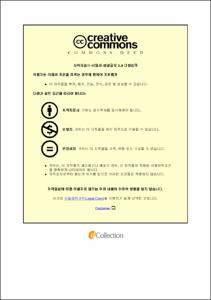중소기업 재직자의 AI 리터러시가 업무효율성 및 직무만족도에 미치는 영향 연구
- Abstract
- Over the past decade, the South Korean government has reduced annual working hours by 200 hours in an effort to promote work-life balance for workers, including the implementation of the 52-hour workweek through the 2018 amendment to the Labor Standards Act. Nevertheless, as of 2023, Korean workers still work 149 hours more per year than the OECD average. Amid this context, public discourse has emerged around the introduction of a 4.5-day or 4-day workweek.
On the other hand, as of 2025, the Korean economy is projected to grow by only 0.8%, largely due to a downturn in the construction sector and worsening trade conditions. In this light, some argue that the 52-hour workweek undermines productivity and weakens global competitiveness. In particular, small and medium-sized enterprises (SMEs) are experiencing a dual burden of increased labor costs due to the rising minimum wage and decreased operational efficiency and productivity resulting from reduced working hours.
The researcher posits that if workers can effectively utilize artificial intelligence (AI), they can perform tasks more efficiently, thereby improving job satisfaction and enhancing business performance, ultimately supporting the feasibility of implementing a 4.5-day workweek. This study empirically analyzes the effects of AI literacy on job satisfaction and work efficiency among employees in SMEs.
AI literacy in this research is classified into five sub-dimensions: knowledge, application, analytical insight, problem-solving ability, and ethical reasoning. The study investigates how each of these sub-dimensions affects both individual and collaborative work efficiency, as well as intrinsic and extrinsic job satisfaction, using a structural equation modeling (SEM) approach.
The findings of this study offer practical implications for sustaining or improving productivity and job satisfaction under reduced working hour policies such as the 4.5-day workweek by enhancing AI literacy capabilities within SMEs. The results also highlight the importance of AI training and organizational culture improvement for SME managers and policymakers.|한국 정부는 근로자의 일-생활 균형을 위해 2018년 『근로기준법』을 개정하여 주 52시간 근무제를 도입하는 등 최근 10년 동안 근로시간을 200 시간 줄였으나, 한국 근로자는 2023년 기준 여전히 OECD 평균 근로시간 대 비 여전히 더 많이 일하고 있다. 2025년 현재 한국 사회는 이제 주 4.5-4일 근무제 도입 담론이 거론되고 있다. 반면, 2025년 현재 한국 경제는 건설업 부진과 통상 여건 악화로 0.8% 성장에 그칠 전망이어서 주 52시간 근무제는 생산성을 낮춰 기업의 글로벌 경쟁력을 저해시킨다는 의견이 있다. 중소기업 의 경우 최저임금 상승으로 인한 원가 증가와 근무시간 단축으로 인한 업무 생산성, 효율성 저하라는 이중고를 겪고 있다. 연구자는 근로자가 AI를 잘 이용하면 더 효율적으로 업무를 수행할 수 있 게 되므로 근로자의 직무만족도를 높여 경영 성과를 달성할 수 있게 하여 결 국 주 4.5-4일 근무제 시행에 기여할 수 있다고 판단했다. 이 연구는 중소 기업 재직자를 대상으로 AI 리터러시가 직무만족도 및 업무효율성에 미치는 영향을 실증적으로 분석하였다. 이 연구는 AI 리터러시를 지식, 활용, 영향분 석력, 문제해결력, 윤리적 사고력의 다섯 가지 하위 요인으로 구분하고, 각 요인이 개인 및 연대 업무효율성과 직무만족(내재적, 외재적 만족)에 미치는 영향을 구조방정식 모형을 활용해 분석하였다. 이 연구 결과는 중소기업 내 AI 리터러시 역량을 강화하면 주 4.5일제와 같은 근무시간 단축 정책하에서도 생산성과 직무만족도를 유지·향상 시킬 수 있는 실천적 함의를 제시하며, 중소기업 경영자와 정책결정자에게 AI 교육 및 조직문화 개선의 중요성을 시사한다.
- Issued Date
- 2025
- Awarded Date
- 2025-08
- Type
- Thesis
- Affiliation
- 한성대학교 지식서비스&컨설팅대학원
- Department
- 지식서비스&컨설팅대학원 스마트융합컨설팅학과
- Advisor
- 최동준
- Degree
- Master
- Publisher
- 한성대학교 지식서비스&컨설팅대학원
- Appears in Collections:
- 스마트융합컨설팅학과 > 1. Thesis
- Files in This Item:
-
-
Download
 200000901548.pdf
기타 데이터 / 1.24 MB / Adobe PDF
200000901548.pdf
기타 데이터 / 1.24 MB / Adobe PDF
-
Items in Repository are protected by copyright, with all rights reserved, unless otherwise indicated.